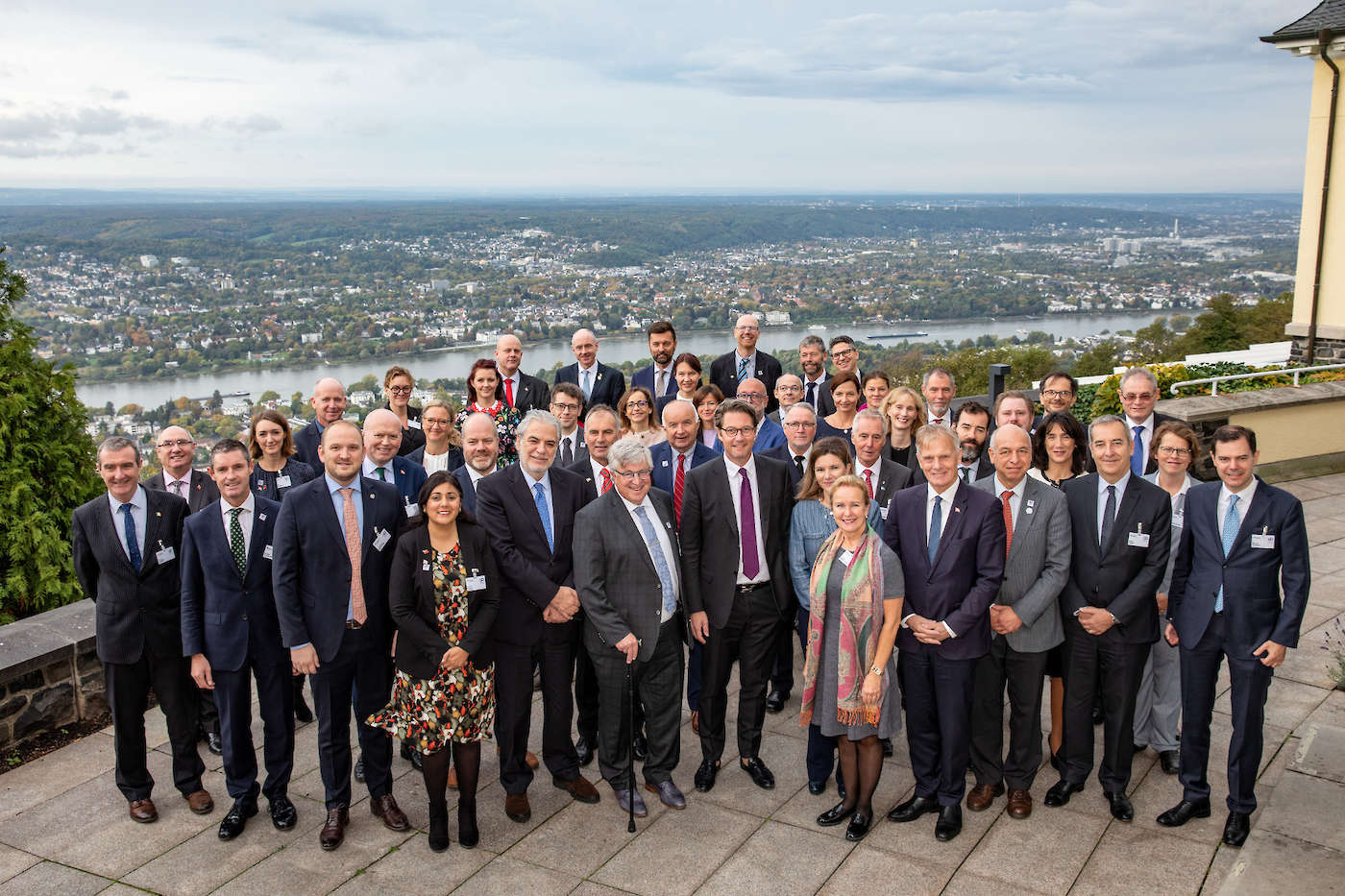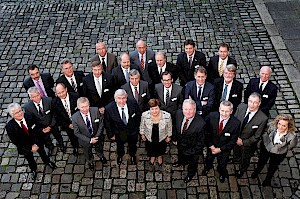Policies
The Agreement
The Bonn Agreement has several levels of policy that govern its operation. Firstly the Agreement itself, originally signed in 1969 and regularly updated since, which outlines the legal basis for the organisation and its work. It stipulates the areas that the cooperation will cover and how Contracting Parties should act within the agreement in the case of pollution.
The consolidated text integrates the Bonn Agreement with subsequent amendments adopted by the Bonn Agreement in a single non-official document to facilitate documentation. Only the Bonn Agreement and the follow-up Agreements adopted by the Bonn Agreement are official documents and kept by the Federal Republic of Germany (Federal Foreign Office).
- Consolidated Text of the Bonn Agreement (English)
- Consolidated Text of the Bonn Agreement (French)
- Consolidated Text of the Bonn Agreement (German)
The Bonn Declaration
In 2019 the Bonn Agreement celebrated its 50 Anniversary with its second Ministerial Meeting. Ministers adopted the Bonn Declaration and the Bonn Agreement Strategic Action Plan 2019-2025. The new action plans includes expanding the scope of application of the Bonn Agreeement to include air pollution caused by shipping.
Ministers also agreed to the accession of Spain. An Observer nation since 2003, Spain became a Contracting Party and the Bay of Biscay was added to the Bonn Agreement Area.
The Dublin Declaration
 The Bonn Agreement held its first Ministerial Meeting in 2010 marking the accession of Ireland to the Agreement. Ministers at the meeting also adopted The Dublin Declaration which set out the future strategic direction for the organisation
The Bonn Agreement held its first Ministerial Meeting in 2010 marking the accession of Ireland to the Agreement. Ministers at the meeting also adopted The Dublin Declaration which set out the future strategic direction for the organisation
OTSOPA
The Working Group on Operational, Technical and Scientific Questions Concerning Counter-Pollution Activities meets once a year and reports to the Bonn Agreement.
Bonn Agreement Strategic Action Plan
The Bonn Agreement Strategic Action Plan containes the practical actions to fulfil the Strategy of the Bonn Agreement. The BASAP is regularly updated to meet new and anticipated challenges to the Marine Environment.
Regional Priorities
The Bonn Agreement (BA) Contracting Parties have agreed to identify and annually review a list of Regional Priorities (RPs) in the field of marine pollution by oil or other harmful substances. The list of identified RPs is obtained through a BA expert consultation mechanism, by considering the Bonn Agreement Strategic Action Plan 2019 - 2025 and its implementation, lessons learnt from incidents and exercises, knowledge gaps, and/or issues raised by Contracting Parties. Regional Priorities have been identified including the ones listed below.
| Priority | Description | |
| RP2 | Promotion and establishment of efficient emergency preparedness, taking into account the obligations under the Marine Strategy Framework and the Water Framework Directives. | Development of a common (sub-)regional approach to MSFD-Descriptor 8 ‘Significant acute pollution’, in particular with regard to spill impact / effect monitoring and assessment, and how significant effects can feed the assessment of good environmental status under the MSFD Directive. |
| RP3 | Perform R&D and information exchange regarding new generation fuels. | Follow-up of the IMAROS pilot project (Improving response capacities and understanding the environmental impacts of new generation low sulphur MARine fuel Oil Spills; see https://www.bonnagreement.org/activities/projects/imaros), with the aim to address pending tasks: Update on the fuel markets’ adaption to the 2020 Sulphur Cap (in a long-term perspective); further research on response technology, and / or development of new technologies and innovation involving spill response industry (including shoreline response); field verification and testing of concepts identified within the IMAROS pilot project; and acquire further knowledge of environmental impacts of ULSFO/VLSFO spills. |
| RP5 | Improvement of the effectiveness of surveillance and recovery operations for floating objects. | Development of a system(s) for (semi-automatic) detection of floating objects such as containers, wood or plastic pellets, which are difficult to detect - in particular in bad weather conditions, or because they can be submerged or subsurface (partly or entirely), or because of their spreading behaviour. Improvement of existing operational drift models used by competent authorities, by improving the drift modelling for floating objects, including cargo released from containers. |
| RP7 | Continue ongoing research on HNS behaviour and response (incl. sea trials and exercises). | Following the ongoing HNS-project MANIFESTS, to continue R&D on HNS pollution with the aim to improve the knowledge and understanding of HNS behaviour, hazards and risks, and to improve detection and response methods; by experimentation, small-scale trials and at-sea trials; and improve existing models by integration of the results. |
Memorandum of Understanding
The Bonn Agreement has an MoU with the OSPAR Commission, our sister organisations, to further our mutual goals.